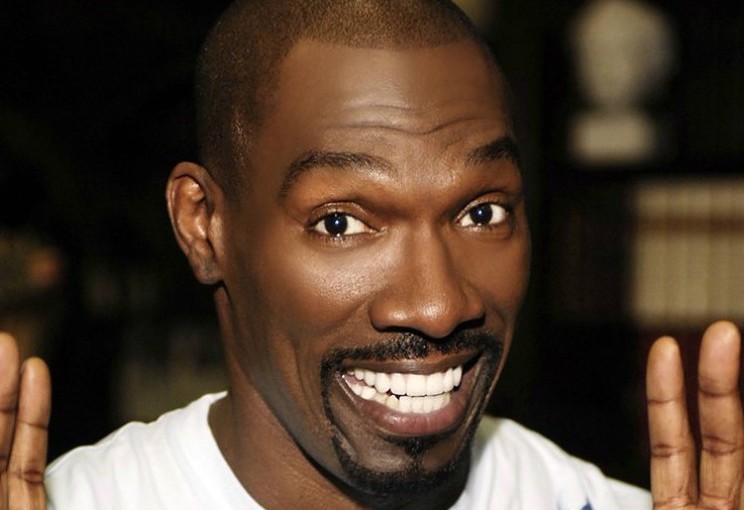Comedy can safely be described as a polarizing enterprise. Sure, there are easy targets like Dane Cook, Adam Sandler and pretty much any sitcom on CBS – derided by some as bargain-bin trash, lauded as fun if mindless entertainment by others.
Hell, even modern-day comedic legends like Louis C.K. (too crass, profane for profanity’s sake), Jerry Seinfeld (boring and mundane), Dave Chappelle (almost too jaded at this point) and Kevin Hart (overly manic and more of a rock star than a comedian) have their detractors. Point being, very few in comedy bask in near-unanimous praise.
Charlie Murphy was one of the exceptions. Murphy, who passed away on Wednesday of leukemia, never experienced the heights of those mentioned above, and he certainly never approached the level of fame of his younger brother Eddie. In fact, the two comedic siblings’ paths to mainstream success could not be more different.
Whereas Eddie was a Saturday Night Live cast member by age 20, one of the biggest standup comics on the planet by 22 and one of the biggest movie stars in the world not long after, Charlie’s career can safely be described as a slow burn. In fact, after a short stint in jail and a term in the Navy, his career didn’t even really begin until his early thirties.
Thanks to his own comedic chops, coupled with his brother’s famous name and connections, Charlie Murphy had small roles in a number of notable films and television shows in the ’90s. From films like CB4, Jungle Fever and The Players Club to television roles in such fare as Martin, Murphy was a consummate “that guy” for the better part of his career.
Then came Chappelle’s Show.
Murphy certainly wasn’t the biggest star to emerge from the sketch comedy program, which ran on Comedy Central on 2003 and '04 (no, the abbreviated final season in 2006 doesn’t count and will never be spoken of again). Rather, Chappelle – already a name, not yet a star – emerged as the supernova of the show, so much so that he ended up retreating from public view for the better part of a decade afterward. Even Bill Burr, one of the show’s main players, has since become a household name thanks to his forthright, brash and brilliant blend of stand-up comedy.
If you ranged between ages 16 and 25 during the early 2000s and admired good comedy, Comedy Central fare like Chappelle’s Show and The Daily Show were not only sources of entertainment, but helped you gain a little perspective on the ever-expanding world around you. Sure, Jon Stewart, Chappelle and Murphy weren’t exactly Charlie Rose, but to say their shows lacked social merit would be vastly underrating their impact.
For the better part of Chappelle’s Show's first season, Murphy was an ultimate “glue guy” – a consummate team player who elevated the proceedings while others – most notably, Chappelle – took center stage. This was evident in a number of first-season sketches, from socially conscious skits like “The Mad Real World” to “The Playa Hater’s Ball.” What resulted was one of the finest seasons of comedy in the history of television.
It took until the show's second season for Murphy to transition from valuable role player to full-blown star. And it all happened on February 11, 2004, when Rick James re-entered the public consciousness. The sketch is quoted ad nauseam and is a legit all-timer in the sketch comedy pantheon, and really, there are no words that can do justice to “Charlie Murphy’s True Hollywood Stories," co-starring Rick James.
It's inarguably one of the finest episodes Chappelle ever produced – yes, the sketch took up the whole half-hour – and the humor of the Rick James story lies not only in the details (which James confirmed as accurate) but in the way Murphy elicited humor. He didn’t go hard for the joke or really tell any jokes at all. Rather, Murphy was able to generate stomach-churning laughs simply by being himself. This is no easy feat; after all, most people aren’t really funny at all.
But this was the beauty of Charlie Murphy; his comedy was effortless. He was akin to that old friend you don’t see often but wish you saw more. The minute he was on screen, whatever film or show featured Murphy was better and funnier for it. He was never the star, but that was kinda the point.
Support Us
Houston's independent source of
local news and culture
account
- Welcome,
Insider - Login
- My Account
- My Newsletters
- Contribute
- Contact Us
Charlie Murphy Was a Comedic Unicorn

Charlie Murphy was the ultimate comedic team player.
[
{
"name": "Related Stories / Support Us Combo",
"component": "11591218",
"insertPoint": "4",
"requiredCountToDisplay": "4"
},{
"name": "Air - Billboard - Inline Content",
"component": "11591214",
"insertPoint": "2/3",
"requiredCountToDisplay": "7"
},{
"name": "R1 - Beta - Mobile Only",
"component": "12287027",
"insertPoint": "8",
"requiredCountToDisplay": "8"
},{
"name": "Air - MediumRectangle - Inline Content - Mobile Display Size 2",
"component": "11591215",
"insertPoint": "12",
"requiredCountToDisplay": "12"
},{
"name": "Air - MediumRectangle - Inline Content - Mobile Display Size 2",
"component": "11591215",
"insertPoint": "4th",
"startingPoint": "16",
"requiredCountToDisplay": "12"
}
,{
"name": "RevContent - In Article",
"component": "12527128",
"insertPoint": "3/5",
"requiredCountToDisplay": "5"
}
]

